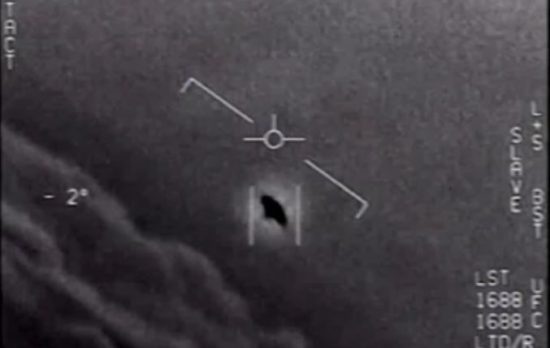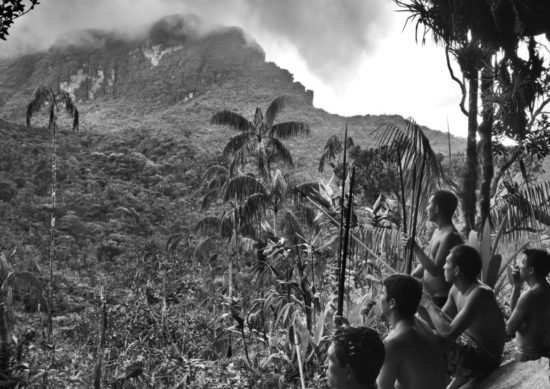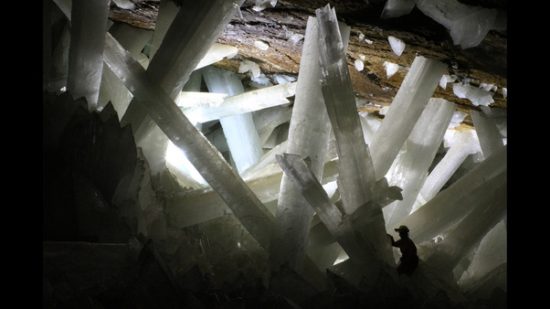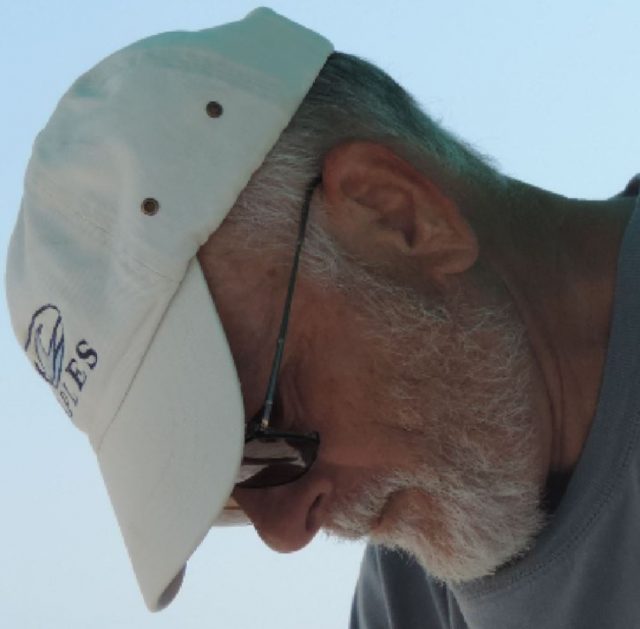Unidentified Aerial Phenomena, UAPs—UFOs in decades past—burning bushes in ancient eras—angels in the sacred texts of human history—all are real. Navy pilots have film.
The Pentagon is releasing UAP videos, which the public has never before seen. Pilots around the world are speaking. The problem is that no one seems to know what UAPs are or where they come from, right?
Wrong.
Someone knows—or did know once. He was a CIA executive who lived down the street in a quiet neighborhood in Bethesda, Maryland when I was in third grade. His daughter was a playmate from time to time. Her dad is dead now. Readers are going to have to take my word.
The CIA photo-analyst pioneer was Arthur C. Lundahl. He studied films of unidentified flying objects. Some years before his death he fully explained in a phone call I will never forget the methodology his team at the CIA used to get to truth.
I was a university student at the time calling about an article in the National Inquirer that mentioned his name. The year was 1974. I thought he should know. He admitted that he did an interview. He seemed eager to share what he learned before he died.
To his dismay the tabloid revealed nothing significant. The news rag infamous for supporting the Orange Mango president bought Art’s story, which other “mainstream” media wouldn’t touch. The editors then proceeded to bury it. The words “catch-and-kill” weren’t associated with journalism in those days. Art would never learn why.
Because my dad was a senior NSA officer and a friend of Mr. Lundahl’s, I knew the importance of keeping national security secrets. Retired agents who know too much are sometimes in old age subjected to induced aphasia that degrades their ability to speak and write sensibly about what they know.
It’s a terrible practice but not expensive; the victims are oblivious. It’s considered humane to let senile agents live into their golden years whenever possible until the time comes to take their secrets into the next life.
Until now I have kept Mr. Lundahl’s truth to myself. I’ve carried the knowledge in the hidden places of my heart and brain for a long time.
CIA agents will recognize Arthur Lundahl because he was the analyst who discovered nuclear weapons on the island of Cuba back in the day. The result of what Arthur observed and shared personally with President John F. Kennedy led to a confrontation between the Soviet Union (now Russia) and the USA that brought civilization—as Earthlings have come to know it—to within a hair’s breadth of its end.
Art was a caring man sensitive enough to love film’s spooky ability to reveal what lies beyond the passage of time in the invisible world of frozen nanoseconds. A clash of civilizations was a nightmare scenario that he dedicated his life to help politicians avoid.
Queen Elizabeth II of England “knighted” Art Lundahl on 17 December 1974 for his unpublished breakthroughs in the field of intelligence photo-analysis. The award had nothing to do with the Cuban Missile Crisis or an alien invasion, as far as I know. Nevertheless, the award became the pretext that the National Inquirer used against Lundahl to catch and kill the insights that he alone carried inside his brilliant mind.
I was not able to learn the complete story of the unpublished particulars that led the Brits to “knight” Arthur. Few people were. It wasn’t because English royalty liked his name. King Arthur is a legend in the British Isles, sure, and thus so was Arthur Lundahl—but only to elites who understood what he did and the reasons why.
The public knows little to nothing about the man except what those who did know him have published on Wikipedia. The public has not heard the story about Sir Arthur C. Lundahl—how he saved humanity from extinction, not once but twice.
Nothing in press reports familiar to me comes close to what Mr. Lundahl shared.
I am dropping some information into a blog bottle to cast into the vast cyber ocean of humanity. Perhaps a miracle will occur, and the right sort of human will read the essay. Maybe someone will possess the contacts and raw personal power to do what needs to be done.
Folks want to get to the bottom of the mystery. For them it’s not lunacy; it’s not humor. No one is smart enough to make jokes about films of things that behave outside the limits of physics familiar to science.
Readers, this mystery has a bottom. It’s a deep bottom that ends in a non-material world alien to the reality that occupies the minds of sophisticated scientists. The public won’t believe the answers when first they encounter them.
A little preparation is in order.
It seems reasonable to experts known to me that substratum must be poured into humanoids drop by drop like an IV drip to prevent the hearts of those who truly care from breaking when the reality of everything they think they know is turned upside down. For readers who are fearful, I beg you, stop reading—now.
Billy Lee
EDITORS NOTE: Due to the timeliness and urgency of the UAP issue, the BOARD has recommended that Billy Lee’s introduction be published immediately; conclusions and speculations will be added later— after fact-checking protocols are completed by the Pontificator Staff. We have added Billy Lee’s sub-headers about subjects addressed in the essay, which will remain for now unpublished until verified by reliable, third-party sources.
Sun-life nascency and emergence
Deep ocean bases
Upper atmosphere supremacy
UAPs internal to sensors
Access issues
Volcanic habitats
High-pressure / high-heat origins & habitats
Prions
Neutrinos
Dark-matter / dark-energy mastery
Sub-microscopic necessity
Amplified nano-technology holograms
Intentions
Conscious processes
Mind & machine controls
Colonization of Enceladus & other water moons
Relationships with Titan
Unusual materials
Isotopic anomalies
USA monetary allocations to FRIBs
Japanese isotopic labs
Captured craft
Creatures & structures
Interrogation methods & results
Interrogation certification & verification
High-resolution sightings
Video encounters
Role of color & heat
Radiation signatures
Incident proximity to defense infrastructure
Communication postures & attitudes
Pursuit / tracking / baiting strategies
Military threats & vulnerability
Microwave induced behavior modification
World views
Variations among species
Evolving relationships
Altered outcomes
Implausibility disinformation consequences…
EDITORS UPDATE, 8 August 2023:
After investigation, our position is this: the United States of America is in possession of advanced technologies. These technologies serve Americans best when not revealed.
We learned of an incident that occurred during the time when Soviets controlled an ICBM base inside Ukraine. Flying craft seized control of several missiles and executed their launch codes. After making flagrant maneuvers, the craft disengaged and disappeared. Sometime after, Ukraine dismantled its weapons infrastructure.
The USA seems to have deployed laser weapons within its fleet of warships — presumably to defend against hypersonic ship killers. The power source for these weapons is secret.













